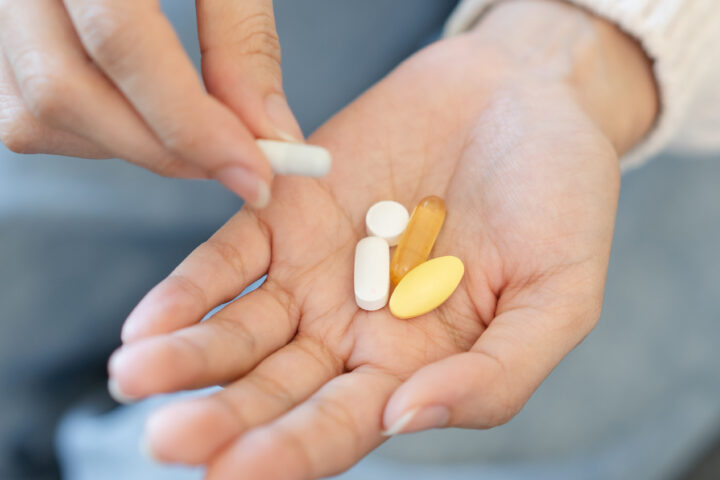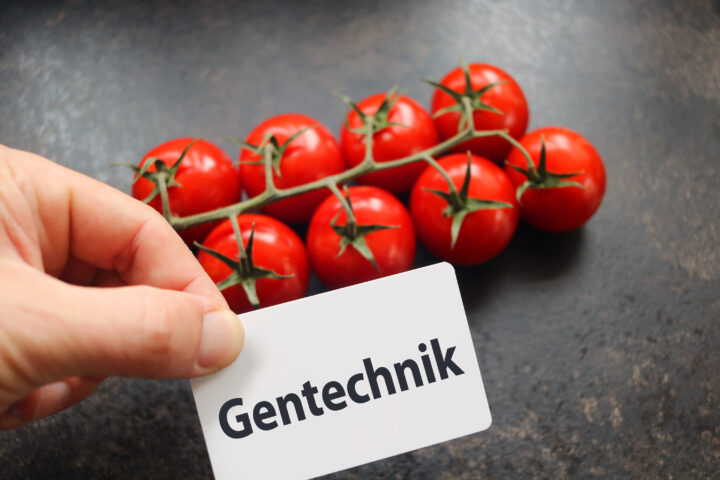
Unfounded Fears of Subtle Poisoning
In a compelling interview with Berliner Tagesspiegel, Andreas Hensel, a renowned Ger-man veterinary, and microbiologist, underscores the often-misunderstood perceptions regarding pesticide-related risks. As the inaugural president of Berlin's Federal Institute for Risk Assessment since 2003, Hensel's organization rigorously examines the safety of chemicals, placing consumer protection at its core.
Friday, September 29, 2023
Andreas Hensel, during the interview, expressed, "There's a prevailing fear among people of a slow poisoning." This misconception is fueled by incessant reports ranging from pesticides in strawberries to aspartame-related cancers. Hensel believes that such reports unduly stir up panic and frequently deviate from the scientific assessment of the actual threats involved. The key lies in understanding the dose. The Federal Institute for Risk Assessment offers valuable insights on the safe consumption levels of various substances, whether it's daily or throughout one's lifetime.
“Inherently Safe Levels”
Hensel points out that discovering pesticides in strawberries shouldn't trigger alarms. The identified residues consistently remain well within the acceptable safety limits. Yet, sensational headlines like "Pesticides in Strawberries" send many consumers into a frenzy, causing them to forbid their children from consuming strawberries. Such reactions, in Hensel's view, are unwarrantedly amplified. Before their approval, plant protection products undergo rigorous evaluations to ascertain any potential harm to both humans and the environment. Hensel underscores the inevitability of residues, even under the strictest applications. "It's an inherent part of the process and doesn't pose a direct risk," he shares with the Tagesspiegel. Contrary to this, there's a contrasting public sentiment. Hensel reveals that a staggering two-thirds of people wrongly believe such residues are illicit. This is far from the truth. The maximum permissible concentration of residues in food undergoes meticulous determination during approval processes. Often, these levels are set considerably below the thresholds of health concerns. Therefore, according to Hensel, consumers face no genuine risks.
Debunking Poisoning Myths
A segment of consumers is apprehensive, pondering the potential accumulation of pesticides in the body. Yet, Hensel has a clear stance: "No evidence suggests anyone in Germany has suffered poisoning from pesticide-laden food." He further highlights that numerous plants naturally possess toxins for defense, citing onions and chilies as examples. Further, Hensel notes that many opting for organic products seek to sidestep pesticides, yet even organic farming isn't pesticide-free. Although many organic-approved pesticides originate from natural sources like copper or sulfur, they too have a mandate – to eliminate pests. Combining various agents to tackle a broader range of pests is an agricultural best practice, prevalent in both organic and conventional farming. A diverse mix might even reduce the overall usage of products. "Multiple agents don't always equate to heightened toxicity," Hensel asserts.
The Importance of Dosage
Responding to the EU Commission's ambition to cut pesticide use by 50% by 2030, Hensel comments, "Farmers deploy pesticides to deliver top-quality produce at competitive prices." Particularly in sectors like fruit and wine production, reductions are challenging. In Germany, a significant 70-80% of all pesticides serve the wine industry. However, consumers often overlook the irony: they fret over pesticide residues but ignore the carcinogenic attributes of alcohol as recognized by the International Agency for Research on Cancer (IARC). A substance's IARC classification doesn't provide a holistic picture. Hensel emphasizes that apart from the inherent characteristics of a substance, the dosage consumed is pivotal. He cautions against overreacting, noting that an increasing cancer incidence is more linked to longevity than diet or chemicals.
The Real Danger Zone: Kitchen
Hensel champions the need for clear communication to dispel daily risk misconceptions. Pointing to our very kitchens, he highlights salmonella as a potent threat, leading to fatalities. Drawing a hypothetical scenario, he states, "Imagine the uproar if even one individual in Germany perished due to pesticides." Each year sees over 100,000 Germans grappling with food poisoning, with actual numbers speculated to be much higher. Many don't even seek medical advice. Offering perspective, Hensel remarks in the Tagesspiegel interview, "For smokers, the health concerns from pesticides pale in comparison to smoking's detrimental effects." Concluding the conversation, he reflects, "It's unfeasible to live a life devoid of risks. I have to breathe, eat, and engage. I harbor no fears. Pursuing an entirely risk-free existence leads to paralysis and a joyless life – therein lies the ultimate risk."
Clarifying Terms: Danger vs. Risk
Pesticide discussions often blur the lines between "danger" and "risk", at times treating them interchangeably. This conflation is both incorrect and careless. A substance's inherent danger doesn't automatically signify elevated risk. Conversely, substances deemed benign might encompass risks. The two aren't mutually exclusive.
Sources
Kindly note:
We, a non-native editorial team value clear and faultless communication. At times we have to prioritize speed over perfection, utilizing tools, that are still learning.
We are deepL sorry for any observed stylistic or spelling errors.
Related articles

Difference between risk and danger
Danger and risk are often confused in the discussion surrounding pesticides. Sometimes the two terms are even used synonymously. That is as incorrect as it is negligent, because dangerous substances do not always present a high risk. By the same token, substances that are not considered to be dangerous can indeed pose a risk. Danger and risk are therefore not identical.

Residue is not the same as residue
Painkillers like Voltaren are a blessing for us – yet in our rivers they can harm fish. If these were crop protection products, calls for bans would be immediate. It becomes clear that we are applying double standards.

ARTE documentary: Genetic engineering in organic farming?
The ARTE documentary “Genetic engineering in organic farming?” examines key controversial questions of modern agriculture: Is the general exclusion of new breeding technologies still up to date? Can the resistance of organic farming be justified scientifically?

The Great Suffering of Farmers
Fire blight, Japanese beetles, or grapevine yellows – farmers in Valais, too, are increasingly feeling helpless in the face of the threats posed by nature. More and more often, they lack the means to effectively protect their crops. This makes it all the more important for the Federal Council to place a pragmatic balancing of interests at the forefront when setting threshold values.

'Tomatoes on your eyes'
The submitted “Food Protection Initiative” calls for “GMO-free food.” Leaving aside this illusory demand, its adoption would mean more bureaucracy, more trade barriers, and less innovation. The Swiss Farmers’ Union describes the proposal as “unnecessary” and warns of a setback to the goal of achieving an even more sustainable agriculture.

